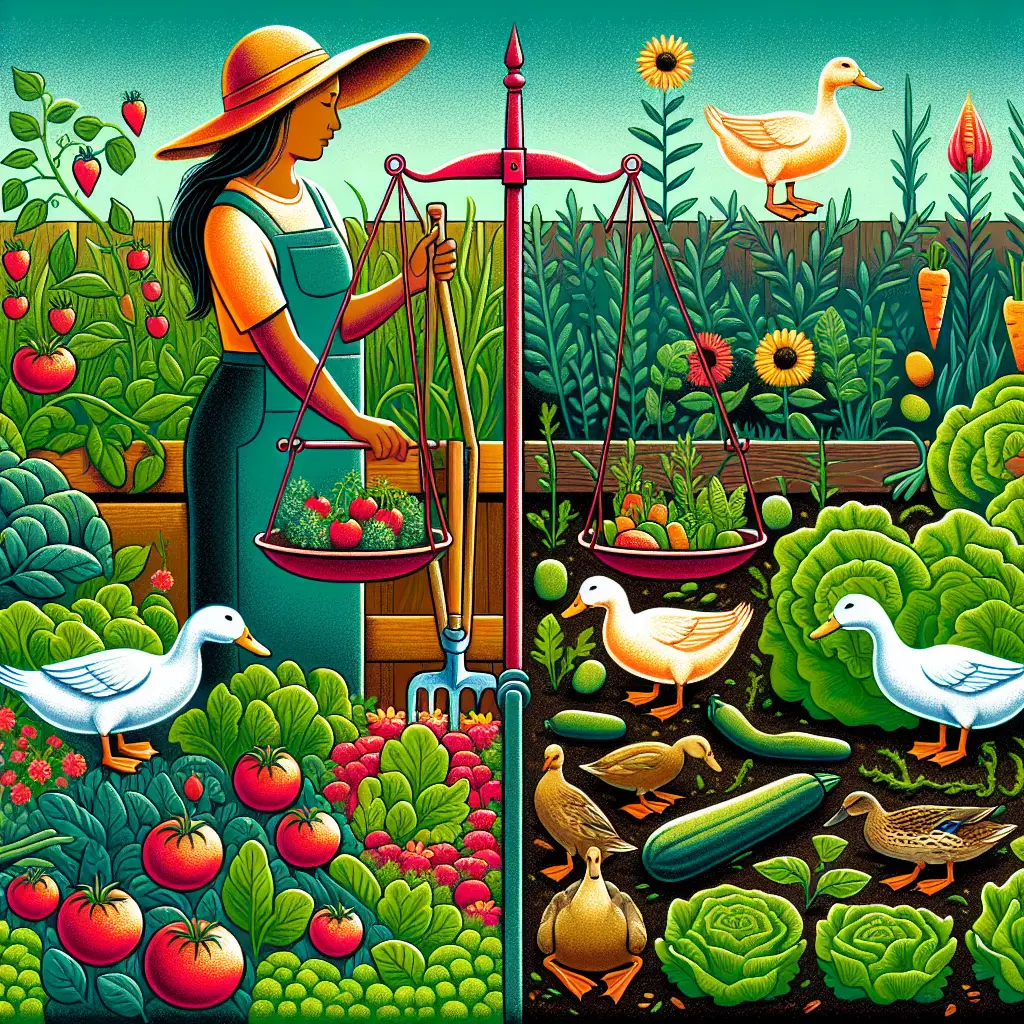Title: Pros and Cons of Gardening with Ducks
Introduction:
Gardening enthusiasts are always looking for innovative ways to enhance their green spaces. One interesting approach that’s been gaining traction is integrating ducks into the garden ecosystem. Yes, you heard right – ducks! Ducks can bring a lot of benefits to your garden, but they also come with their own set of challenges. In this in-depth article, we’ll explore the various pros and cons of gardening with ducks to help you decide whether these feathered friends are right for your backyard paradise.
Pros of Gardening with Ducks:
- Pest Control
Ducks are natural foragers and excel at controlling unwanted pests in the garden, such as slugs and snails. In fact, research shows that ducks can significantly reduce pest populations, which helps to safeguard your plants without resorting to harmful chemicals. University of Florida’s Gardening Solutions
- Nutrient-Rich Fertilizer
Ducks produce manure that is an excellent source of nutrients for your plants. Their droppings are high in nitrogen, phosphorus, and potassium – essential elements for plant growth. This form of natural fertilizer can improve soil fertility and structure as highlighted by a study on the impact of duck manure on soil health. Penn State Extension
- Watering Aid
Ducks love water, and as they play and splash around, they inadvertently help with the watering process. Their activities can ensure that water reaches deeper soil layers, promoting better root growth and plant health.
- Enjoyment and Companionship
Gardening with ducks can be a delightful experience. They add an element of charm to your garden and can be quite sociable and entertaining, offering gardeners companionship and joy. Backyard Poultry Magazine discusses the joy and therapeutic benefits of having ducks in the garden.
Cons of Gardening with Ducks:
- Plant Damage
While ducks are great for pest control, they can sometimes be indiscriminate in their foraging and may damage young seedlings or tender plants. Gardeners need to be cautious about what plants are within reach of their web-footed friends.
- Mess and Maintenance
Ducks can be messy. They produce a lot of droppings, and while this can be beneficial as fertilizer, it can also lead to an excess of manure that needs to be cleaned up. Managing their pond or water source can also require additional work to keep the area sanitary.
- Noise
Ducks can be quite noisy, especially during mating season. This may be a nuisance for some gardeners or their neighbors who prefer a more serene environment.
- Predators
Having ducks in your garden may also attract predators like foxes, raccoons, or birds of prey. Adequate measures must be taken to protect the ducks from potential threats, which could mean additional expenses for secure housing and fencing. The Spruce provides some great tips on protecting backyard ducks from predators.
Conclusion:
Gardening with ducks can offer a wealth of benefits, from natural pest control to the sheer pleasure of their company. However, it is not a decision to be taken lightly. Prospective duck gardeners should consider the potential drawbacks such as plant damage, noise, and the extra maintenance required. Therefore, if you’re ready to embrace the challenge and reap the rewards of a duck-inclusive garden, why not start by checking out some duck-safe plants and duck shelters to provide the best environment for both your feathered friends and your plants? Ultimately, the decision boils down to personal preference, garden goals, and the willingness to adapt to the unique demands of gardening with these fascinating creatures.
Remember, whether you decide to invite ducks into your garden or not, the most important factor is to create a space that brings you satisfaction and harmony — happy gardening!
(We understand that gardening enthusiasts like you love in-depth articles with practical advice. Consider bookmarking our blog for more tips and tricks to transform your backyard into a thriving oasis.)

